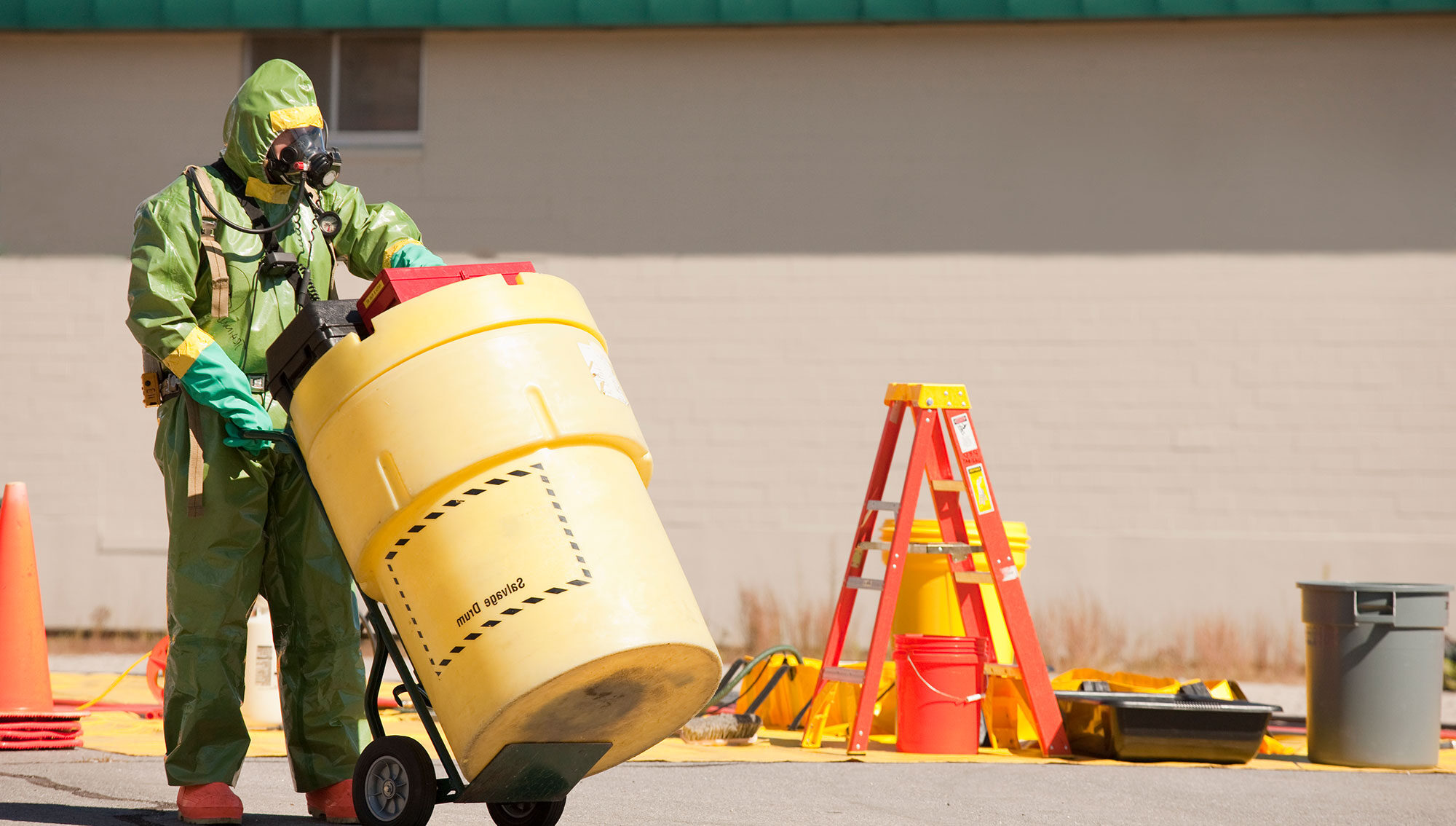
RCRA compliance: waste management, training, and penalties
Hazardous waste management under the Resource Conservation and Recovery Act
Managing hazardous waste effectively is crucial for protecting the environment and human health. The Resource Conservation and Recovery Act (RCRA), authorizes the Environmental Protection Agency (EPA) to regulate the waste management and disposal activities of industrial and municipal waste generators, hazardous waste treatment, storage, and disposal facilities (TSDFs), and hazardous waste transporters.
From its proper identification and classification to storage, transportation, and disposal, RCRA mandates strict guidelines to minimize environmental impact and prevent health risks. Thousands of individuals and facilities, from the local dry cleaner to hazardous waste incinerators, are regulated by RCRA. Below we’ll explore the key components of RCRA, training requirements, compliance obligations, and potential penalties for non-compliance
RCRA vs. CERCLA: Understanding the differences
It’s important to note that RCRA should not be confused with the Comprehensive Environmental Response, Compensation, and Liability Act (CERCLA), also known as the Superfund law. RCRA focuses on the prevention and proper management of hazardous waste from its generation to disposal, including hazardous waste disposal practices. CERCLA deals primarily with the cleanup of hazardous waste sites, particularly those where contamination has occurred due to accidental releases or improper disposal. Both acts work together to provide a comprehensive approach to environmental protection and public health safety.
Exploring the subtitles of RCRA
RCRA is divided into several subtitles, addressing different aspects of waste management. These subparts create a cohesive framework designed to prevent pollution, protect public health, and encourage sustainable waste practices across industries and states.
Subtitle C
Subtitle C of RCRA establishes national standards for hazardous waste management, including hazardous waste disposal, ensuring consistent practices across all states. It provides the EPA with the authority to oversee and approve state implementation of these standards. Additionally, Subtitle C includes corrective action provisions to address and remediate hazardous waste releases into the environment.
Subtitle D
Subtitle D of RCRA governs the management and disposal of solid (nonhazardous) waste, especially the design and operation of municipal solid waste landfills and other solid waste disposal facilities. It regulates the management of nonhazardous industrial solid waste.
Subtitle I
Subtitle I of RCRA regulates the storage of petroleum products and hazardous substances in underground storage tanks. It requires tank owners and operators—both for new installations and existing tanks—to implement measures for preventing, detecting, and cleaning up any releases of hazardous substances. The regulation also bans the installation of unprotected steel tanks and piping.
RCRA regulates cradle to grave
Under Subtitle C of RCRA, all hazardous waste must be managed from its generation to final disposal, known as “cradle to grave.” The waste is tracked with a hazardous waste manifest—a shipping document that travels with hazardous waste from the point of generation, through transportation, to the final TSDF. This tracking form is at the heart of the EPA hazardous waste management system.
RCRA also authorizes states to develop and enforce their own waste management programs once they are approved by the EPA. The state programs must be as stringent or more stringent than the federal regulation.
Understanding the consequences of RCRA non-compliance
The penalties for violating RCRA can be significant and shouldn’t be overlooked. Organizations that fail to meet hazardous waste management requirements face severe financial consequences, with fines that can quickly accumulate.
If an organization violates RCRA Subtitle C requirements, it can be fined up to $37,500 per day for each day of noncompliance. If an organization knowingly breaks RCRA regulations, they can be fined $50,000 per day per violation and be sentenced to 5 years in prison. States that run their own RCRA programs can impose their own penalties in addition to the federal penalties.
Essential training guidelines for RCRA compliance
To ensure compliance with the Resource Conservation and Recovery Act (RCRA), organizations must adhere to specific training requirements for employees handling hazardous waste. These requirements are designed to equip workers with the knowledge and skills needed to manage waste safely and in accordance with federal regulations. A few of these include the RCRA Hazardous Waste Personnel Training, and RCRA’s Universal Waste Personnel Training.
An organization is subject to RCRA Hazardous Waste Personnel Training (40 CFR 262.17, 40 CFR 264.16, and 40 CFR 265.16) if they are not a very small quantity generator (VSQG) (under the federal definition, the generator of 100 kilograms (kg) or less per month of nonacute hazardous waste and 1 kg or less of acute hazardous waste).
“Facility personnel” must be trained in the following areas (40 CFR 262.17(a)(7)(i), 40 CFR 264.16(a)(3), and 40 CFR 265.16(a)(3)):
- Key parameters for automatic waste-feed cutoff systems
- Communications or alarm systems
- Response to fires or explosions
- Response to groundwater contamination incidents
- Shutdown of operations
An organization is also subject to RCRA’s Universal Waste Personnel Training (40 CFR 273.16 and 40 CFR 273.36).
If the organization is a small quantity handler of universal waste (<5,000 kg of accumulated universal waste at any one time), all employees who handle or have responsibility for managing universal waste must have training in the proper handling and emergency procedures appropriate to the type(s) of universal waste handled at the facility (40 CFR 273.16).
If the organization is a large quantity handler of universal waste (5,000 kg or more of accumulated universal waste at any one time), all employees must be thoroughly familiar with proper waste handling and emergency procedures relative to their responsibilities during normal facility operations and emergencies (40 CFR 273.36).
Be proactive with environmental compliance
To ensure success and avoid costly penalties, it’s essential for organizations to take a proactive approach to RCRA compliance. This includes implementing comprehensive hazardous waste management systems, providing ongoing employee training, and regularly reviewing and updating procedures to stay in line with federal and state regulations.
BLR offers comprehensive environmental compliance solutions, including ready-to-use training materials, centralized permit storage, and intuitive workflow tools. Leveraging our subject matter experts’ 100+ years of collective industry experience, BLR provides the expertise and tools needed to ensure organizations maintain compliance with the latest regulatory activity from EPA and OSHA, protecting their employees and the environment.



